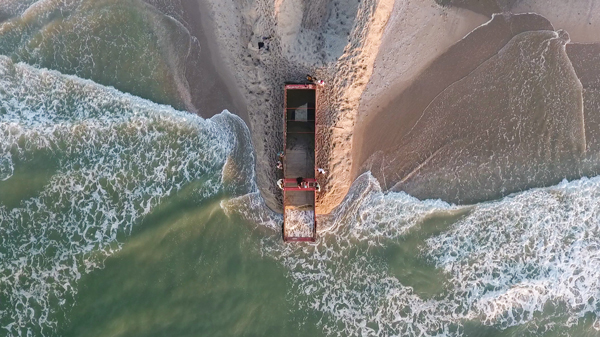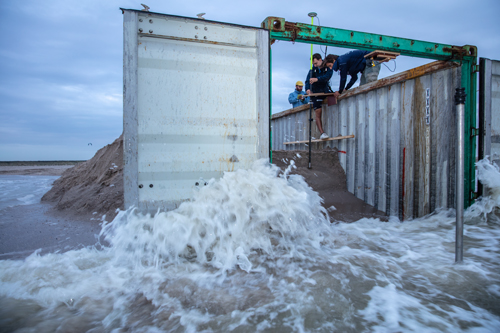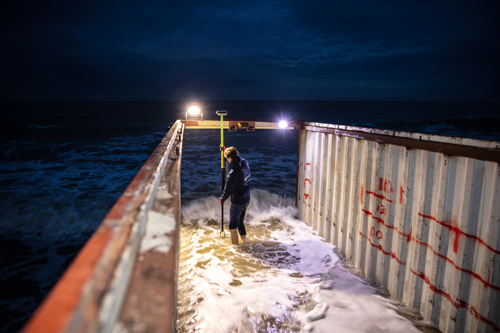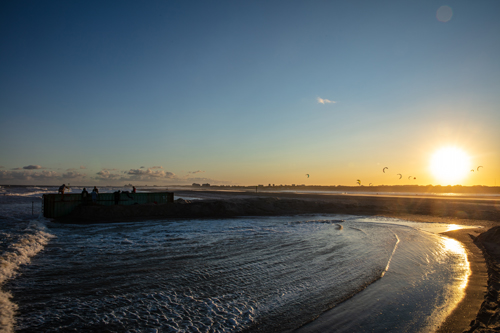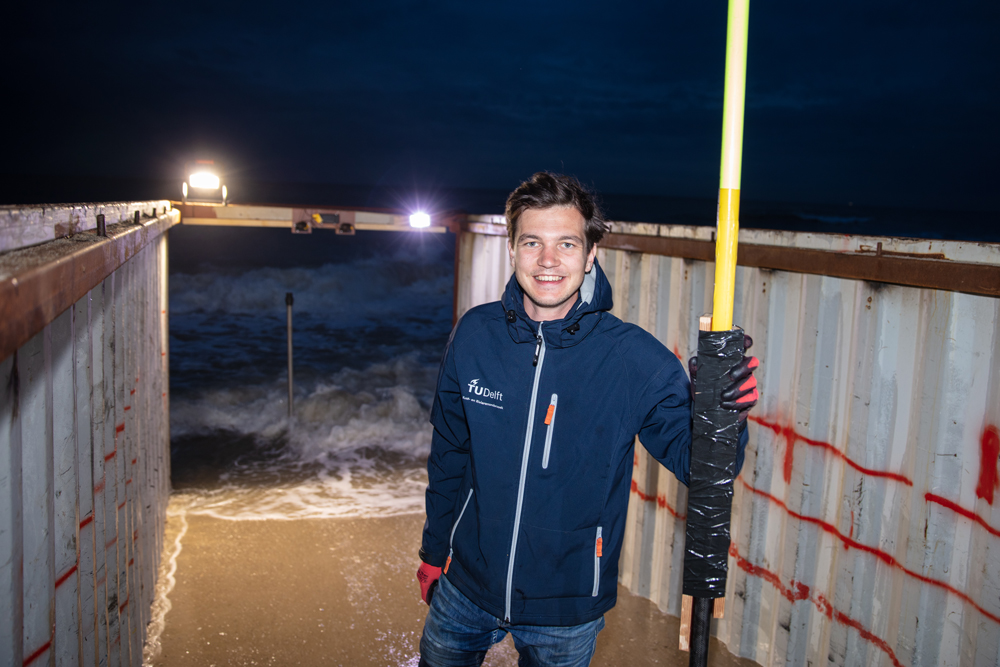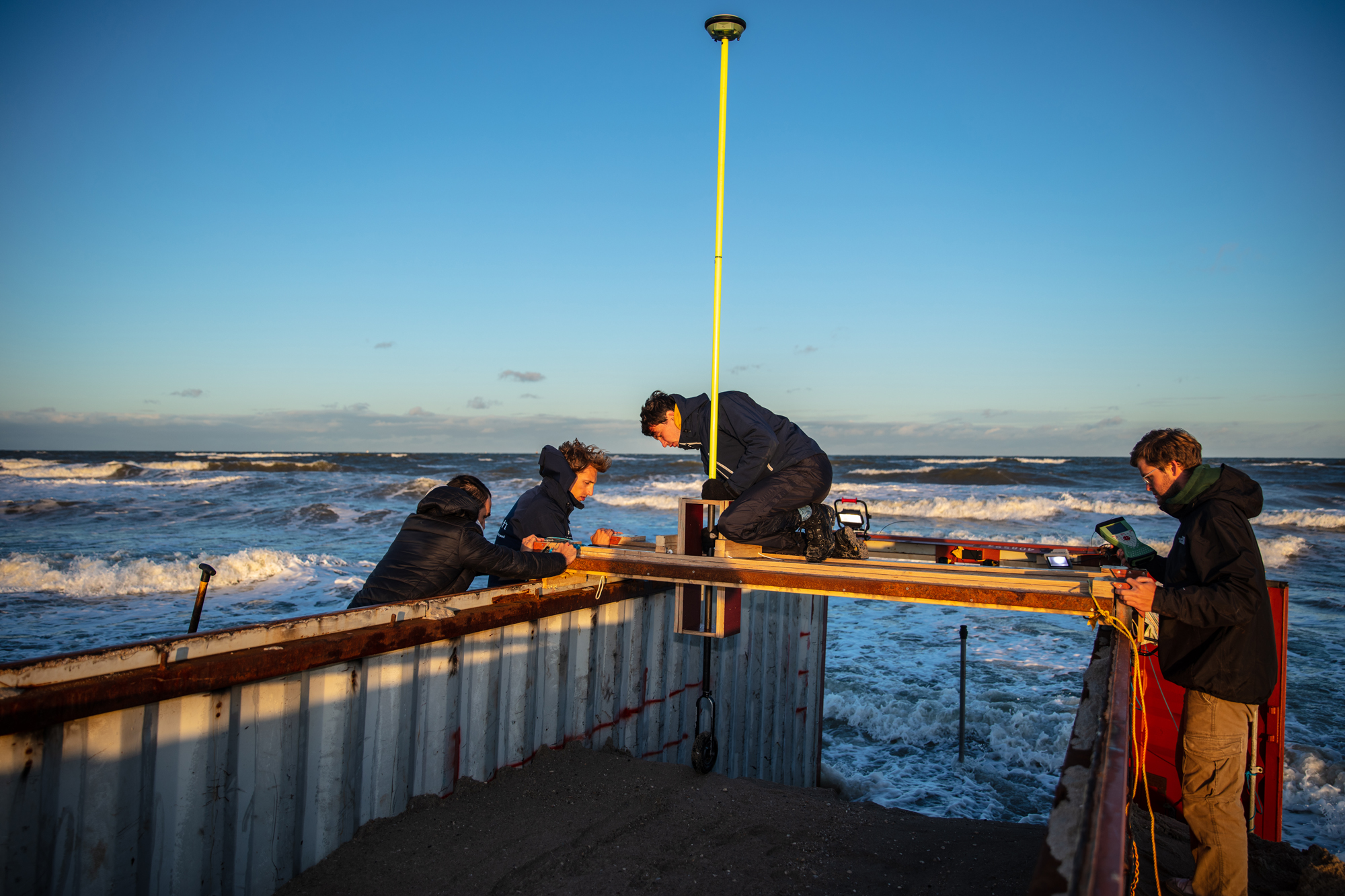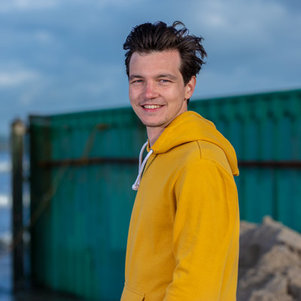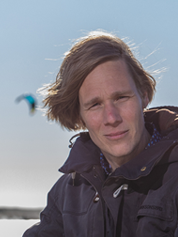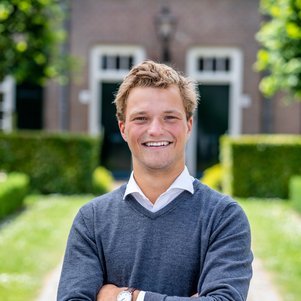Jasper linked his graduation project to Hydraulic Fieldwork, commissioned two hefty diggers to place two 12.5 metre shipping containers in the surf and got to work. Assisted by 16 fellow Hydraulic Fieldwork students Jasper set about building dunes inside the containers to test the merits of this particular kind of dune research.
Tell us what dune research consists of.
Jasper: 'Experiments in dune research are usually conducted in labs or in the field, or the beach in this case. So, it’s a choice between building a dune in an expensive delta flume which can generate any wave you like, or building a dune on the beach where you have to contend with different types of weather and the conditions that go with them, such as rainfall, wind and currents. My professors and I decided to put two big shipping containers in the surf and build a number of dunes in them. That meant using real waves instead of simulated lab waves which could make this a relatively cheap addition to coastal dune research.’
What was your research question and how did you answer it?
Jasper: ‘At this moment, I’m still at the stage where I’m analysing the data so unfortunately, I have no final conclusion I can share yet. What I’m investigating is whether the results of the kind of tests I have been doing are comparable with earlier lab tests or field tests without the use of a container. I want to find out whether shipping containers have a viable place in dune research.
To do that I conducted four tests over four days. I positioned the containers in such a way that water only came in at high tide. That enabled us to build the dunes at low tide and conduct the test when the tide came in.
During the first test the waves entered the empty containers. Using pressure sensors, go pros and gps measurements we tried to ascertain if the waves behaved differently inside the containers compared to what they were doing outside. We then did three tests involving different dune heights. We carried out measurements throughout high tide to study the impact of the waves and the subsequent dune erosion. I’m still working on the final data analysis, but it looks as if the tests have been a success!’
What was your biggest challenge?
Jasper: ‘How do I get two containers each measuring 12.5 metres in length on the beach? And how do I build a 1.5 metre dune before the tide comes in at 7am?’ ”
What is the most important thing you learned?
Jasper: ‘A graduation project is yours to make as complicated, easy, big or small as you like. That is something you really have to think about before you start. I also learned that any project has its ups and downs. It’s all part of the process.’
What did you enjoy most about your project?
Jasper: ‘That life is a beach at the end of a successful test! And the sunsets, they were nice as well. There were lots of highlights. Rody, the driver of the bulldozer who came to help build a dune at 5 in the morning in exchange for a crate of beer. And Hilbrand, another digger driver, who brought us a storage container but left a huge block of concrete inside as a surprise so there wasn’t room for much else. We went from building a dune in the storm to sunglasses and swimming trunks the next day. And I liked my bike ride to the port of Rotterdam to go shopping for shipping containers.’
What next for the research project?
Jasper: ‘The containers are the property of TU Delft so they can now be used for other projects. And if other scientists want to do dune research but don’t have access to a wave flume I hope they will know that there is an alternative.’
What are your plans for the future?
Jasper: ‘I’m still processing the results of my research but when I’ve finished I want to get a job at a big dredging company or contractor, perhaps as project manager or in project execution. In 5 to 10 years I hope to be involved in major coastal engineering projects, preferably abroad. And who knows I may get the opportunity to set up a few myself.’

